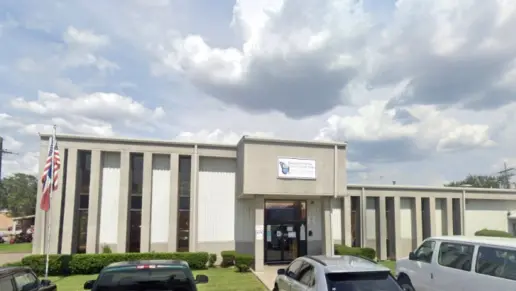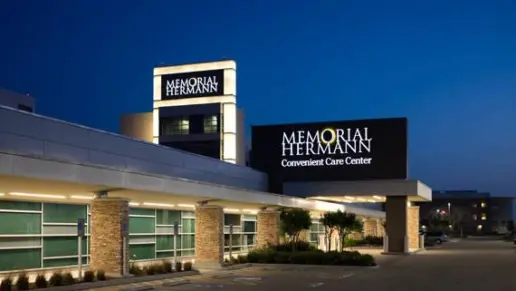About Serenity Foundation of Texas – Recovery Dynamics Program
Founded over 50 years ago in Cape Girardeau, Missouri the Community Counseling Center (CCC) offers affordable mental healthcare to the community. It is a nonprofit organization accredited by CARF International and certified by the Missouri Department of Mental Health. The center provides a variety of behavioral health services including mental health and substance use disorder treatment. It offers programs to adults, children and families and meets the community's urgent needs through education, therapy and innovative support.
They offer several outreach initiatives such as the GoNEXTion Street Outreach Program. This program focuses on those who are experiencing homelessness, prostitution, substance use disorders or mental health crises. The program delivers direct intervention on the streets and provides access to treatment, short term housing and long term resources. One of the program’s main goals is to orient people in a nonjudgmental way and link them to the services they need to stabilize their situation and improve their health outcomes.
Another program is the Peer Impact Center which serves as a supportive space for recovering individuals. It’s intended to cultivate peer to peer connection and provides clients with support, empowerment and strategies for sustainable well being. This fits their holistic care model perfectly as clients have not just the immediate treatment for the addiction but also resources for continued recovery.
Last but not least, CCC offers a vast array of specialized programs including the Community Education Program which raises awareness around mental health and the Child and Adolescent Services which serves the younger population with early interventions. They also offer Adult Behavioral Health Crisis Services. The crisis team is available 24 hours a day for seven days a week. They provide immediate assistance in emergencies in several counties. They offer mobile responses, in person assessments and arrangements for additional care if necessary.
Other Forms of Payment
Private insurance refers to any kind of healthcare coverage that isn't from the state or federal government. This includes individual and family plans offered by an employer or purchased from the Insurance Marketplace. Every plan will have different requirements and out of pocket costs so be sure to get the full details before you start treatment.
Self-pay involves paying for treatment out of your own pocket. You can use savings or credit, get a personal loan, or receive help from family and friends to fund your treatment. If you don't have insurance or your insurance plan doesn't cover a specific program, self-pay can help ensure you still get the care you need.
Medicare is a federal program that provides health insurance for those 65 and older. It also serves people under 65 with chronic and disabling health challenges. To use Medicare for addiction treatment you need to find a program that accepts Medicare and is in network with your plan. Out of pocket costs and preauthorization requirements vary, so always check with your provider.
Addiction Treatments
Levels of Care
Treatments
The goal of treatment for alcoholism is abstinence. Those with poor social support, poor motivation, or psychiatric disorders tend to relapse within a few years of treatment. For these people, success is measured by longer periods of abstinence, reduced use of alcohol, better health, and improved social functioning. Recovery and Maintenance are usually based on 12 step programs and AA meetings.
During rehab in Texas, you'll deal with underlying issues that contribute to addiction. By addressing these challenges and learning healthy ways to cope with them, you'll develop strategies that help you live a drug-free lifestyle.
Many of those suffering from addiction also suffer from mental or emotional illnesses like schizophrenia, bipolar disorder, depression, or anxiety disorders. Rehab and other substance abuse facilities treating those with a dual diagnosis or co-occurring disorder administer psychiatric treatment to address the person's mental health issue in addition to drug and alcohol rehabilitation.
Opioid rehabs specialize in supporting those recovering from opioid addiction. They treat those suffering from addiction to illegal opioids like heroin, as well as prescription drugs like oxycodone. These centers typically combine both physical as well as mental and emotional support to help stop addiction. Physical support often includes medical detox and subsequent medical support (including medication), and mental support includes in-depth therapy to address the underlying causes of addiction.
Substance rehabs focus on helping individuals recover from substance abuse, including alcohol and drug addiction (both illegal and prescription drugs). They often include the opportunity to engage in both individual as well as group therapy.
Programs




Clinical Services
Trauma therapy addresses traumatic incidents from a client's past that are likely affecting their present-day experience. Trauma is often one of the primary triggers and potential causes of addiction, and can stem from child sexual abuse, domestic violence, having a parent with a mental illness, losing one or both parents at a young age, teenage or adult sexual assault, or any number of other factors. The purpose of trauma therapy is to allow a patient to process trauma and move through and past it, with the help of trained and compassionate mental health professionals.
Contact Information
1542 North 3Rd street
Abilene, TX 79601


